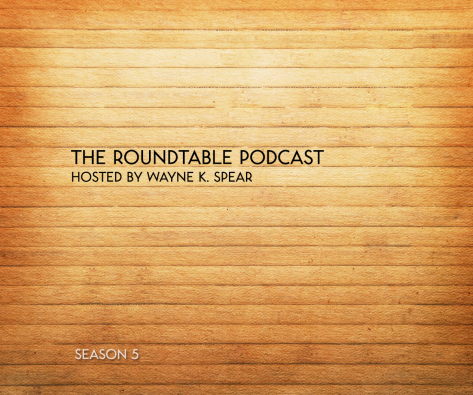
Tag Archives: Literature
The End of the World
They often ask me, How will it end? They, the people, the ones who think about such things; and it, the world, I presume, the earth but also everything upon it. They ask me because I know, because I have seen the future. I alone have seen it, not in a dream or a vision but in math. Dreams and visions may deceive, but math is pure. It does not lie. So they ask me, How will it end?
Consummatum Est: a story

“I have been ready to die for an eternity now.”
THE KNIFE IN BOTH hands, I give a quick thrust and pierce the skin of my throat. The snap reminds me, all this time later, of the German wieners of my youth. Now I’ll lie here on the floor for what will seem an eternity. But like every other time, I won’t die. I won’t even bleed, or feel pain.
Jeremy Paxman and Poetry’s Bad Rap

A GUARDIAN UK article, written by Alison Flood and published over the weekend, quotes the Forward prize judge and TV presenter Jeremy Paxman as wishing aloud that “poetry ‘would raise its game a little bit, raise its sights’, and ‘aim to engage with ordinary people much more.’” Every so often you encounter this lament, often uttered by poets, that poetry has become irrelevant to the great mass of plain old folk.
A Decent Life (a short story)

HAROLD HAD KEPT in his mind the image of the newspaper’s doubled face, the luxurious automobile below the fold, and the latest disaster from across the world above. From the livingroom he regarded the quiet dignity of his neighbourhood and congratulated himself for his accomplishments. He felt he lived in one of Amigary’s finest neighbourhoods, in a very respectable Tudor home. He thought of the things he would like to do over the summer, perhaps install a swimming pool or a deck. The neighbour’s dog barked. Harold reorganized his mental list, adding Fence at the top and moving Pool below Deck. His wife would want to know how he proposed to pay for these: but never mind that, he thought to himself. She was always worrying over nothing. They would do fine, he’d say. Harold could smell the dog shit in the air and wondered, Would the others smell it too? The thought that they would embarrassed him and made him only more determined to build the fence. Never mind that a fence would never stop a smell. It was something, a start. In the meantime, they would be polite and pretend not to notice.
Sei Shonagon and the Pillow Book

A PILLOW BOOK is an open-ended and spontaneous collection of fragments, and as such may include lists, observations, poems, short personal essays and diary entries. A precursor of the genre zuihitsu (random jottings – the more literal meaning to proceed, or follow, with a brush), this literary form made its appearance under the title Makura no Sōshi, or Notes of the Pillow, one thousand years ago.
Your Writing is Not Like a Barry Manilow Song
Conversation and the Writer’s Voice

A TOPIC CAN BE both vast and yet reducible to the most simple of terms. Here’s an example: a writer is a person who does things with words. Whether her goal is to inform, deceive, terrify, entertain, charm, persuade or seduce, a writer will have to do it with words. A reader, also, has nothing but words from which to cultivate the pictures, emotions and experiences which are ‘in’ the text. A writer’s voice is a big topic, but the topic does indeed rest upon these objects called words. And words alone.
Commonplacing Considered

FOR THE PAST twenty years and more I’ve maintained a collection of quotations in black, made-in-Czechoslovakia, Pragotrade-branded volumes. This sort of collection is known as a “commonplace book,” and the keeping of one commonplacing. I take such care to mention the Pragotrade name because I purchased a number of these at Coles in the early 1980s and have been unable to find them for over two decades. Simple and unadorned, these dollar-something books could be had in your choice of blue, red, or black cover, the paper inside a serviceable unbleached pulp with the faint bluish lines you may recall from your grammar school “foolscap.” This was long before the market became flooded with overpriced and pretentious looking “journals,” designed to separate you from an inflated amount of your money with the implicit suggestion that nothing is too dear for your precious thoughts. I have always preferred, however, my cheap Pragotrade notebooks and the thoughts, only some cheap, of others.
The Virtue of Watching Your Language
THE ENGLISH LANGUAGE is not unique in having a fluid, ever-changing character. Best described as a Low German dialect imbricated by Latin and Greek, via eleventh century Frenchified Norseman, English has changed a good amount since Geoffrey Chaucer wrote the following lines, somewhere about the year 1390:
Now, sire, and eft, sire, so bifel the cas,
That on a day this hende Nicholas
Fil with this yonge wyf to rage and pleye,
Whil that her housbonde was at Oseneye,
As clerkes ben ful subtile and ful queynte;
And prively he caughte hire by the queynte,
And seyde, “Ywis, but if ich have my wille,
For deerne love of thee, lemman, I spille.”
Good fortune and Bob Rae weren’t always on the best of terms

FEDERAL LIBERAL LEADER Bob Rae’s citation of William Shakespeare was an indirect invocation also of a commonplace political euphemism — the putting aside of personal ambition “to spend more time with the family.” Announcing his decision yesterday not to run for permanent leadership, he produced the closing lines of Sonnet 25:
Remembering Christopher Hitchens
I FIRST CAME across the writer Christopher Hitchens when he was a young Socialist contributing his “Minority Report” to the Nation. Very much yet in his soixante-huitard, Trotskyist phase, if not in possession any longer of his Socialist International card, he reminded me of my favourite writer, George Orwell.
How Writers Write

THERE IS an enormous store of narrative concerning the working habits of authors, much of it interesting and in my case consumed with amusement but skepticism also.
Ulysses, Bloomsday, and the Best of All Literary Parties

IN AN AGE which commends novels by citing their “accessibility,” one praises James Joyce’s Ulysses before a good many deafened ears. This singular 1922 work demands much from the reader, but the reward of one’s efforts is enormous. The highest tribute I can pay is this: I derive pleasure beyond what I can describe from the time I’ve lived among the fictional citizens of Dublin on June 16, 1904. I feel a bit sorry for anyone who doesn’t, or can’t, understand why I say this.
When the Bookish Finish Last
There is a famous anecdote concerning two nineteenth-century British Prime Ministers and bitter rivals, Benjamin Disraeli and William Gladstone. The former may be credited with first articulating “Progressive Conservatism” — by way of his 1844 novel Coningsby, or The New Generation — and the latter with both establishing and dominating the British Liberal Party, having ended his affiliation to the High Tories. According to the standard account, Gladstone asserted (doubtless with approval) “I predict, Sir, that you will die either by hanging or of some vile disease.” Disraeli’s response was characteristically immediate, biting, and witty: “That all depends, sir, upon whether I embrace your principles or your mistress.”







